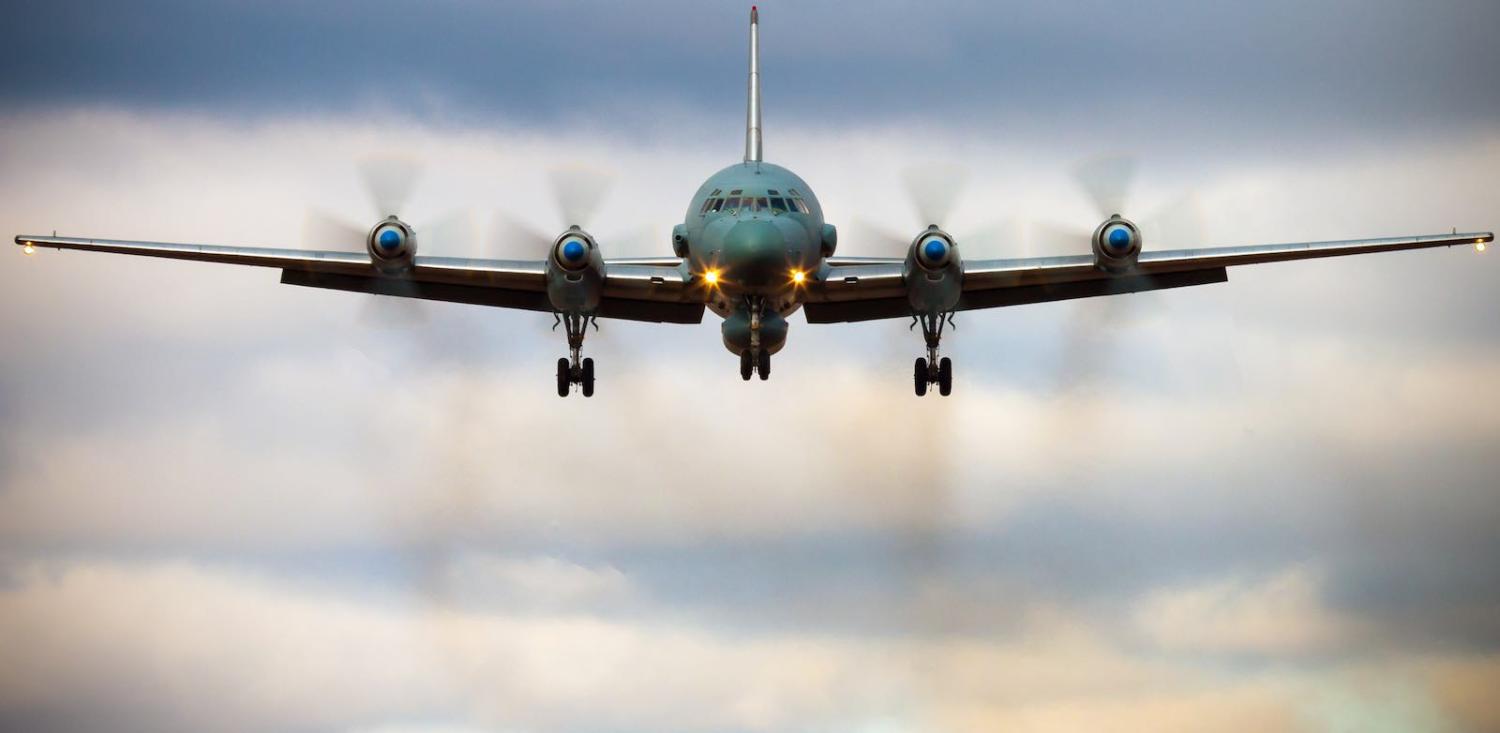The downing of a Russian Il-20 aircraft off the Syrian coast this week with the death of 15 personnel is another reminder of the cost to Moscow of its pro-regime military intervention. A little over six months ago, nearly 40 Russians died when a transport aircraft crashed on approach to the airbase at Hmeimem.
In a potentially crowded battlespace, the ineffectiveness of the liaison relationships that Russia has will be of major concern.
The downing of the aircraft this week is being treated as a battlefield incident. Early on, Russian military sources tried to point the finger of blame at a French ship, only to later acknowledge the aircraft was shot down by Syrian air defences. A Russian Defence Ministry spokesman still sought to blame “irresponsible actions” by Israel, claiming the aircraft was used as cover while Israeli warplanes attacked a Syrian facility in the coastal city of Latakia.
Russian President Vladimir Putin, however, appeared to lower the temperature in his most recent comments. Putin said the deaths were caused by a tragic chain of chance.
Whatever the truth, this latest incident would seem to have little practical impact for future operations. Israel has conducted over 200 missions into Syrian territory during the past two years, normally targeting Iranian, Hezbollah, or Iranian-related Syrian targets. Russia has tolerated these strikes, both because it is not willing to wear the price of stopping them, and Moscow is happy for someone else to raise the cost for Iran to remain in Syria and degrade its capabilities at the same time.
But in a potentially crowded battlespace, the ineffectiveness of Russia's liaison relationships will be of major concern. Knowing that Russia has aircraft operating in the area, Moscow claims it was only given one minute's notice by Israel of the impending attack. Whether this is true or not, it is at least of equal concern that Russia’s liaison relationship with Syria’s air defence units in areas where the Russian air force operates is either insufficient or not working.
Mistakes will always occur in any military operation, particularly where coalitions are involved. But the fact that this type of incident has taken place three years into Russia’s military intervention raises some disturbing operational questions for Moscow.
What public and private actions Moscow undertakes in response to the incident is likely to signal who Russia really thinks is at fault on this occasion.

